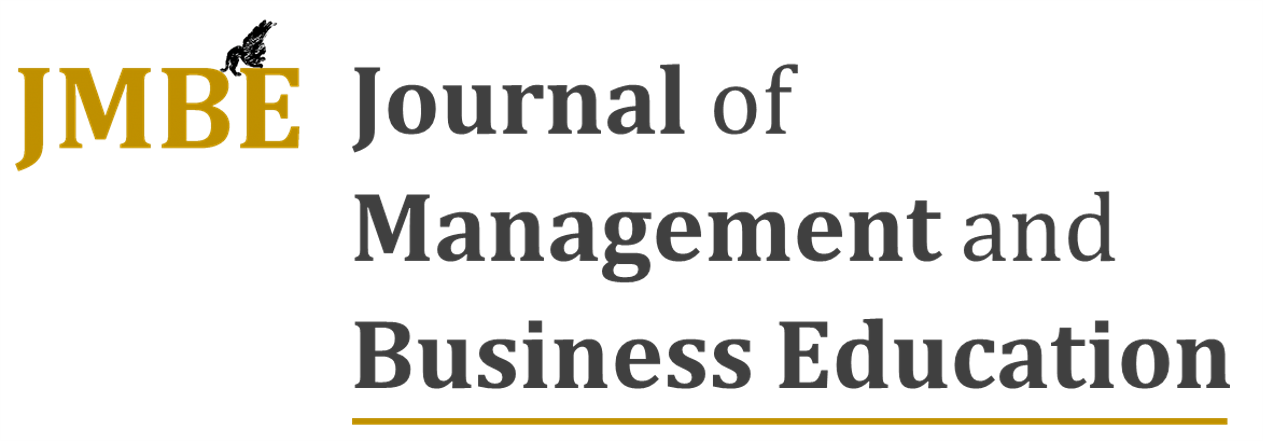An experiment for a quality education using business materials tailored to learning profiles
DOI:
https://doi.org/10.35564/jmbe.2023.0019Keywords:
Learning styles, learning strategies, teaching innovation, learning preferences, quality educationAbstract
With innovation serving as the primary driver, higher education institutions are essential to fulfilling the Sustainable Development Goal of quality education. Innovating in teaching means constantly adapting to new learning environments and changing audiences, but the advantage is that diversity remains constant. Making resources accessible in a variety of formats promotes inclusiveness, quality and flexibility to different learning preferences and styles, which supports a culture of lifelong learning. In a resource-constrained environment, lecturers often do not have evidence of how this variety of materials benefits the learner. A teaching innovation project is proposed to find out the diversity in learning styles in the classroom as well as the preferences and evaluations of students about three types of materials provided by lecturers of a given lesson, presented through text, graphics and audio. The results have given us a better understanding of the teaching-learning process and the needs of students.
Downloads
References
Alarcón Villalobos, Y.J. (2023). Efecto de la aplicación de un programa de capacitación de estilos de aprendizaje en el rendimiento académico de los estudiantes del tercer año de la carrera de medicina de la Universidad de la Integración de las Américas, año 2019. Revista UNIDA Científica, 7(1), 12-19.
https://doi.org/10.21679/arc.v5i2.108 DOI: https://doi.org/10.21679/arc.v5i2.108
Barbosa da Silva, A.; Canós Darós, L.; de Araújo Lima Coelho, AL.; Perelló-Marin, MR.; & Santandreu Mascarell, C. (2019) Estilos y estrategias de aprendizaje de estudiantes: un estudio comparativo entre España y Brasil. Journal of Management and Business Education, 2(3), 192-214. https://doi.org/10.35564/jmbe.2019.0014 DOI: https://doi.org/10.35564/jmbe.2019.0014
Bigné, E.; Badenes-Rocha, A.; Ruiz, C.; & Andreu, L. (2019). Development of a blended course for online teaching: process and outcomes. Journal of Management and Business Education, 2(2), 108-126. https://doi.org/10.35564/jmbe.2019.0010 DOI: https://doi.org/10.35564/jmbe.2019.0010
De Miguel, M. (2003): “Calidad de la Enseñanza Universitaria y Desarrollo Profesional del Profesorado”, Revista de Educación, 331, pp.13-34.
DE MIGUEL, M. (2005) (Coord.): Modalidades de Enseñanza centradas en el Desarrollo de Competencias: Orientaciones para Promover el Cambio Metodológico en el Espacio Europeo de Educación Superior.
https://doi.org/10.5944/ried.2.10.992 DOI: https://doi.org/10.5944/ried.2.10.992
DE MIGUEL, M. (2006): Metodologías de Enseñanza y Aprendizaje para el Desarrollo de Competencias. Alianza Editorial, Madrid.
Diago Egaña, M.L., Martínez Abad, F. y Perochena González, P. (2022). Preferencias de estilos de aprendizaje en el alumnado español de entre 11 y 15 años. Revista de Investigación Educativa, 40(2), 589-606.DOI: http://dx.doi.org/10.6018/rie.495231 DOI: https://doi.org/10.6018/rie.495231
Ferguson, T., & Roofe, C. G. (2020). SDG 4 in higher education: Challenges and opportunities. International Journal of Sustainability in Higher Education, 21(5), 959-975.
https://doi.org/10.1108/ijshe-12-2019-0353 DOI: https://doi.org/10.1108/IJSHE-12-2019-0353
FERNÁNDEZ, A. (2006): “Metodologías Activas para la Formación en Competencias”, Educatio siglo XXI, 24, 35-56.
Freiberg Hoffmann, A.; Ledesma, R.; Fernández Lipporace, M. (2017): “Estilos y estrategias de aprendizaje en estudiantes universitarios de Buenos Aires”, Revista de Psicología, 35 (2), 535-573.
https://doi.org/10.18800/psico.201702.006 DOI: https://doi.org/10.18800/psico.201702.006
Ghanem, S. (2020). "E-learning in Higher Education to Achieve SDG 4: Benefits and Challenges," 2020 Second International Sustainability and Resilience Conference: Technology and Innovation in Building Designs(51154), Sakheer, Bahrain 1-6, doi: 10.1109/IEEECONF51154.2020.9319981.
https://doi.org/10.1109/ieeeconf51154.2020.9319981 DOI: https://doi.org/10.1109/IEEECONF51154.2020.9319981
Gibson, E. J. (1969). Principles of perceptual learning and development. Appleton-Century Crofts
Global Goals (2023). Official website. Available in https://www.globalgoals.org/goals/4-quality-education/
Kolb, D. (1984). Experiential Learning. Prentice Hall Inc. Result score too low
Robertson, L., Smellie, T., Wilson, P., & Cox, L. (2011). Learning styles and fieldwork education: Students’ perspectives. New Zealand Journal of Occupational Therapy, 58 (1), 36-40.
Shallcross, T. and Robinson, J. (2007). “Is a decade of teacher education for sustainable development essential for survival?”, Journal of Education for Teaching, 33 (2), 127-147.
https://doi.org/10.1080/02607470701259382 DOI: https://doi.org/10.1080/02607470701259382
Stover, J.B.; Uriel, F.; Freiberg Hoffmann, A.; Fernández Liporace, M. (2015): “Estrategias de aprendizaje y motivación académica en estudiantes universitarios de Buenos Aires”, Psicodebate. 15 (1), 69-92.
https://doi.org/10.18682/pd.v15i1.484 DOI: https://doi.org/10.18682/pd.v15i1.484
University of Cantabria (2023). Teaching guide of the course Introduction to Business Administration. Available in [Accessed June 2023]: https://web.unican.es/estudios/Documents/Guias/2022/es/G339.pdf
Downloads
Published
How to Cite
Issue
Section
License
Copyright (c) 2023 Journal of Management and Business Education

This work is licensed under a Creative Commons Attribution-NonCommercial-ShareAlike 4.0 International License.
License terms at: https://creativecommons.org/licenses/by-nc/4.0/legalcode




